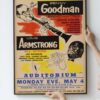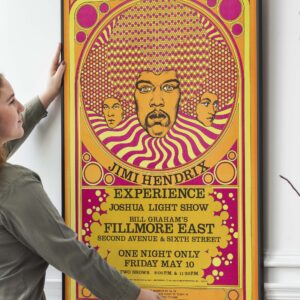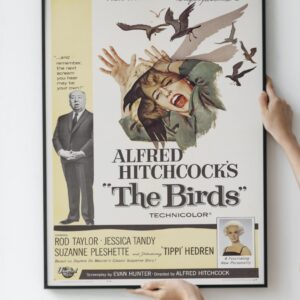Louis Armstrong 1941 Full-Color Satchmo Concert Poster Print PRINTABLE DOWNLOAD
$5.00
- High-quality, High-Resolution Download
- The base size is 18×24 inches and can print to much larger if required.
- Re-size to custom sizes upon request.
- File sent directly to your inbox after secure purchase. Save time and money.
- Support: If you have questions then please email or message and we will be happy to help.
Louis Armstrong 1941 Full-Color Satchmo Concert Poster Print PRINTABLE DOWNLOAD
** THIS LISTING IS FOR AN INSTANT DIGITAL PRINTABLE DOWNLOAD*
JPG 3:4 ratio for printing sizes (file labeled 18×24):
6″ x 8″
9″ x 12″
12″ x 16″
15″ x 20″
18″ x 24″ – 23″x36″ or larger.
————————-
**This listing is for a printable digital file, no physical item will be sent **
————————-
HOW THIS WORKS
You will receive an email from PulpPoster.com with a link to download the files immediately after payment. (Please check your spam folder if you do not see the email from us).
*File Delivery: Files will be available to download once payment is confirmed.
*Payment: Payment cannot be refunded once the electronic file has been sent.
*Shipping: Items are not shipped to you. Items purchased digitally will be emailed to the email that you have provided.
Louis Armstrong: The Jazz Icon Who Defined an Era
Louis Armstrong, often referred to as “Satchmo” or “Pops,” was a jazz legend whose influence on music and culture is immeasurable. Born on August 4, 1901, in New Orleans, Louisiana, Armstrong grew up in poverty but found solace and passion in music. He first gained recognition as a cornet and trumpet player, and his distinctive gravelly voice set him apart as a remarkable vocalist.
Armstrong’s career took off in the 1920s when he joined the King Oliver Creole Jazz Band and later moved to Chicago to play with his mentor Joe “King” Oliver’s band. His virtuosic trumpet skills and innovative improvisation quickly earned him acclaim. Armstrong’s recordings with his Hot Five and Hot Seven groups during this period, such as “West End Blues” and “Potato Head Blues,” are considered some of the most influential in jazz history.
One of his most enduring contributions to jazz was his mastery of scat singing, a vocal improvisation technique that became a hallmark of his style. His 1926 recording of “Heebie Jeebies” is often credited with popularizing scat singing.
In the 1930s, Armstrong moved to Los Angeles and began to transition from small jazz ensembles to big bands. His renditions of popular songs like “Hello, Dolly!” and “What a Wonderful World” in the 1960s brought him international fame and acclaim. These hits showcased his versatility and appeal to a broad audience.
Beyond his musical prowess, Armstrong was a trailblazer in breaking racial barriers in the entertainment industry. He frequently spoke out against racial injustice and used his platform to advance civil rights causes.
Louis Armstrong’s impact on jazz and popular music is immeasurable. He not only shaped the development of jazz but also brought joy and inspiration to millions through his music and infectious personality. His legacy as an ambassador of jazz and a symbol of the enduring power of music continues to resonate with audiences worldwide, making him an enduring icon in the history of music. Louis Armstrong passed away on July 6, 1971, but his music lives on, a testament to the timeless quality of his artistry.
Only logged in customers who have purchased this product may leave a review.
Related products
ANIMATION & COMIC POSTERS
Nausicaa of the Valley of the Wind, Toei, 1983 Japanese Promotional Poster PRINTABLE DOWNLOAD






















Reviews
There are no reviews yet.